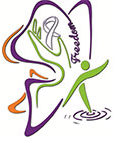The Society for Oncology Massage defines oncology massage as the modification of massage techniques in order to safely work with the effects of cancer and cancer treatment, and includes people in active treatment, those in recovery or survivorship, as well as those at the end of life. More and more clinical research supports the use of massage in reducing pain and anxiety, while oncology patients report massage benefits include improved sleep, decreased sense of isolation, enhanced body image, and increased feelings of well being.

Let’s consider some information a Registered Massage Therapist trained in oncology massage will take into consideration when collaborating with you on how to safely and effectively provide massage treatment:
Standard oncology massage intake questions include:
- Cancer treatment history
- Tumor site or metastasis
- Compromised blood cell counts
- Lymph node involvement
- Blood clots or blood clot risk
- Medications short and long term
- Vital organ involvement
- Fragile or unstable tissue
- Medical devices
- Clients experience of fatigue, neuropathy, or pain
- Changes in sensation
- Late effects of treatment
Massage adaptations required for:
- Fatigue
- Peripheral neuropathy
- Low blood cell counts
- Blood clots
- Bone pain
- Bone metastases
- Radiation or surgery
- Removal of lymph nodes
- Lymphedema
- Medications
- Medical devices
- Late effects of treatment
S4OM states that with appropriate modifications there are few absolute contraindications. Deep tissue applications for a person in active treatment and massage over the site of a tumor are however universally contraindicated.
Massage Benefits can include:
- Reduced pain and fatigue
- Decreased anxiety
- Less nausea
- Improved sleep
- Eased isolation
- Enhanced body image
- Greater sense of well-being
An oncology trained therapist has completed comprehensive training in massage therapy to become a Registered Massage Therapist as well as additional specialized training that addresses the side effects of cancer or its various treatments and how to best modify treatment to the specific needs of the client.
Consider what else the Society for Oncology Massage has to say:
- Even after people are out of treatment, receiving massage from an Oncology Massage Therapist is important due to the potential for late effects of treatment.
- An Oncology Massage Therapist (OMT) will adapt massage techniques to safely meet the changing bodywork considerations during and after cancer treatment.
- Many cancer treatments require long-term massage modifications. If you are in or have a history of cancer treatment, request an oncology massage trained therapist.
So, what do you think? It’s worth looking into and getting the information you need to make decisions on how you can help yourself through your experience with cancer.
